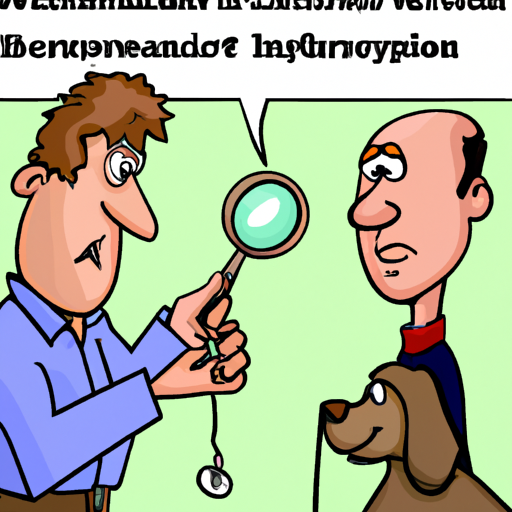As a caregiver, your pet’s health is your top priority. If your dog is suffering from whipworm, it’s essential to know how to treat it effectively. Here’s a comprehensive guide to help you provide the best possible care for your four-legged friend.
Understanding Whipworms in Dogs
Whipworms, scientifically known as Trichuris vulpis, are one of the most common types of intestinal parasites found in dogs. Named for their whip-like shape, these worms live in the large intestine and cecum, where they cause irritation and inflammation.
Symptoms
Dogs infected with whipworms may exhibit:
- Diarrhea, sometimes bloody
- Weight loss
- Anemia
- Dehydration
- Lack of energy
Diagnosis of Whipworm Infection
If you suspect your dog may have whipworm, the first step is to get a confirmed diagnosis. This usually involves taking a stool sample to your vet for testing.
- Collect a fresh stool sample: Ensure the sample is no more than 12 hours old.
- Visit your vet: Your vet will examine the sample under a microscope to look for whipworm eggs.
- Follow-up testing: In some cases, your vet may recommend additional tests to rule out other health issues.
Treatment Options for Whipworm
If your dog is diagnosed with whipworm, don’t panic. While whipworms can cause serious health problems if left untreated, they are typically easily eradicated with the right treatment.
Medication
Your vet will likely prescribe a deworming medication to kill the whipworms. Commonly used medications include:
- Fenbendazole (Panacur)
- Milbemycin (Interceptor)
- Febantel (included in Drontal Plus)
These medications are usually given orally and may need to be administered multiple times to ensure all whipworms and their eggs are eradicated.
Environmental Control
Since whipworm eggs can survive in the environment for up to five years, it’s important to keep your dog’s environment clean to prevent re-infection.
- Clean up feces immediately
- Regularly clean and disinfect your dog’s living areas
- Limit your dog’s access to potentially contaminated areas
Preventing Whipworm Infection
Prevention is always better than cure. Here are some steps you can take to reduce your dog’s risk of getting whipworm:
- Regular vet visits: Regular fecal exams can help detect whipworms early.
- Good hygiene practices: Cleaning up after your dog promptly can prevent whipworm eggs from contaminating the environment.
- Preventive medications: Regular use of preventive medications can keep your dog whipworm-free.
| Prevention Method | Effectiveness |
|---|---|
| Regular vet visits | High |
| Good hygiene practices | Medium |
| Preventive medications | High |
Frequently Asked Questions
Q: Can humans get whipworms from dogs?
A: While humans can get a type of whipworm, it’s not the same species that infects dogs. Human whipworms are typically transmitted through contaminated soil, not pets.
Q: How often should I deworm my dog?
A: The frequency of deworming depends on your dog’s lifestyle and risk factors. Discuss this with your vet to determine the best schedule for your pet.
Q: Can whipworms be fatal to dogs?
A: If left untreated, whipworms can cause serious health problems that can be potentially fatal. However, with early detection and proper treatment, most dogs recover fully.
Q: How long does it take for whipworms to be eliminated after treatment?
A: It can take a few weeks to a few months for whipworms to be completely eliminated from your dog’s system after treatment. Your vet may recommend follow-up fecal exams to ensure the infection has been cleared.
Q: Can whipworms come back after treatment?
A: Yes, dogs can be re-infected with whipworms if they come into contact with contaminated feces or soil. Regular preventive measures can help reduce the risk of re-infection.
Remember, as a caregiver, your role in your pet’s health is crucial. Armed with this knowledge, you’re well-equipped to protect your dog from whipworms. As always, consult your vet if you have any concerns about your pet’s health.



